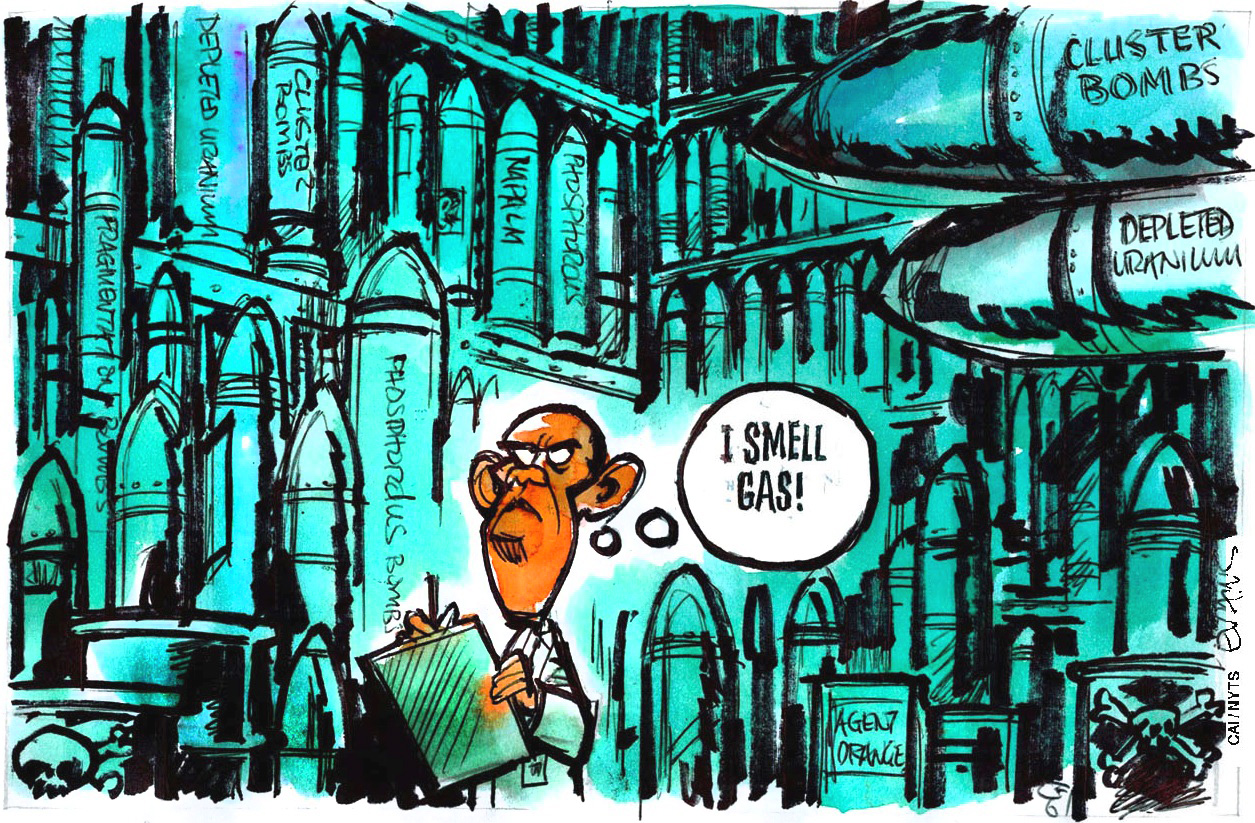The continuous use of cluster bombs — many of them manufactured by the United States — in several conflicts around the world, shows a disregard for human rights and tarnishes the image of those countries that make, sell and use them. Because of the high number of civilians who are frequently their victims — including children who unknowingly pick them up — they should more appropriately be called "cowards' bombs."
Cluster bombs eject explosive bomblets designed to kill personnel and destroy vehicles over a wide area. Even though all weapons are dangerous, cluster bombs are a particular threat to civilians because they affect a wide area and leave behind a significant number of unexploded bomblets, which can maim civilians — many of them children — for decades after the end of a conflict. They are also very costly to find and remove. Unexploded bomblets may linger for years after a conflict has ended.
Nations that ratify the Convention on Cluster Munitions adopted in Dublin, Ireland, in May 2008, are prohibited from using them. This convention entered into force and became binding international law on Aug. 1, 2010. The Convention on Cluster Munitions bans the stockpiling, use and transfer of virtually all existing cluster bombs, and provides for the clearing up of unexploded munitions.



